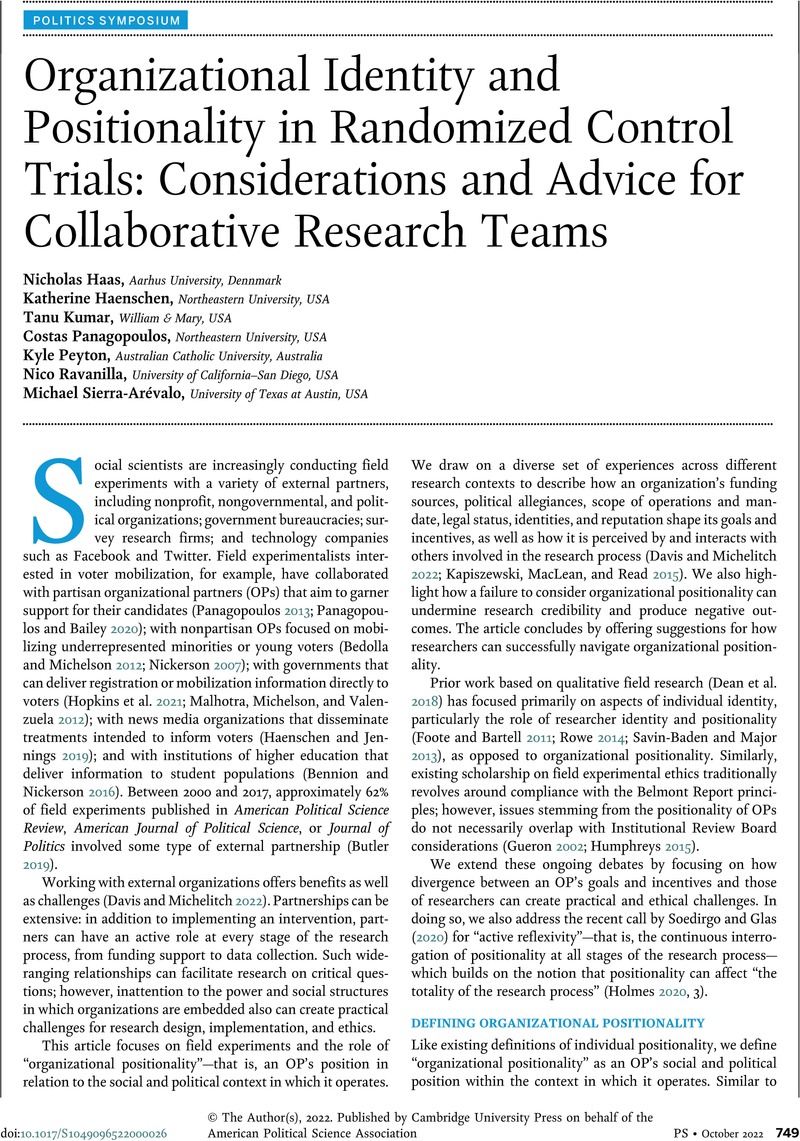Crossref Citations
This article has been cited by the following publications. This list is generated based on data provided by Crossref.
Kim, Eunji
Badrinathan, Sumitra
Choi, Donghyun Danny
Karim, Sabrina
and
Zhou, Yang-Yang
2022.
Navigating “Insider” and “Outsider” Status as Researchers Conducting Field Experiments.
PS: Political Science & Politics,
Vol. 55,
Issue. 4,
p.
754.
Corduneanu-Huci, Cristina
Dorsch, Michael T.
and
Maarek, Paul
2022.
What, Where, Who, and Why? An Empirical Investigation of Positionality in Political Science Field Experiments.
PS: Political Science & Politics,
Vol. 55,
Issue. 4,
p.
741.
Creary, Melissa
and
Gerido, Lynette Hammond
2023.
The Public Performativity of Trust.
Hastings Center Report,
Vol. 53,
Issue. S2,
Wong-Parodi, Gabrielle
Domingue, Simone
Harrison, Teal
Herbert, Natalie
Maillard, Lisa
and
Lemos, Maria Carmen
2024.
Leveraging the humanity of randomized controlled trials for actionability.
Cell Reports Sustainability,
Vol. 1,
Issue. 5,
p.
100076.
Davis, Justine M.
and
Wilfahrt, Martha
2024.
Enumerator Experiences in Violent Research Environments.
Comparative Political Studies,
Vol. 57,
Issue. 4,
p.
675.



